The following was originally posted on over on MCU Exchange as part of a great new series, and has been republished here with permission.
Marvel’s Black Panther film, now scheduled for 2018, will be an exciting and bold new step for a number of reasons. Not only will it arguably be the first modern blockbuster to feature a principally black cast, but it will also likely weave elements of science fiction and geo-politics into the superhero structure in a way that has rarely been done before.
Set in the fictional African nation of Wakanda — an isolationist and technologically superior society that is forced to contend with growing external threats — the film is likely to grapple with complex issues of power, colonialism, and foreign military involvement — all the while maintaining the fun, action-adventure experience we’ve come to know and love from Marvel films. Balancing these differing tonal elements will no doubt be a challenge, but the ten directors below have exhibited an ability to do just that.
1. Ava DuVernay
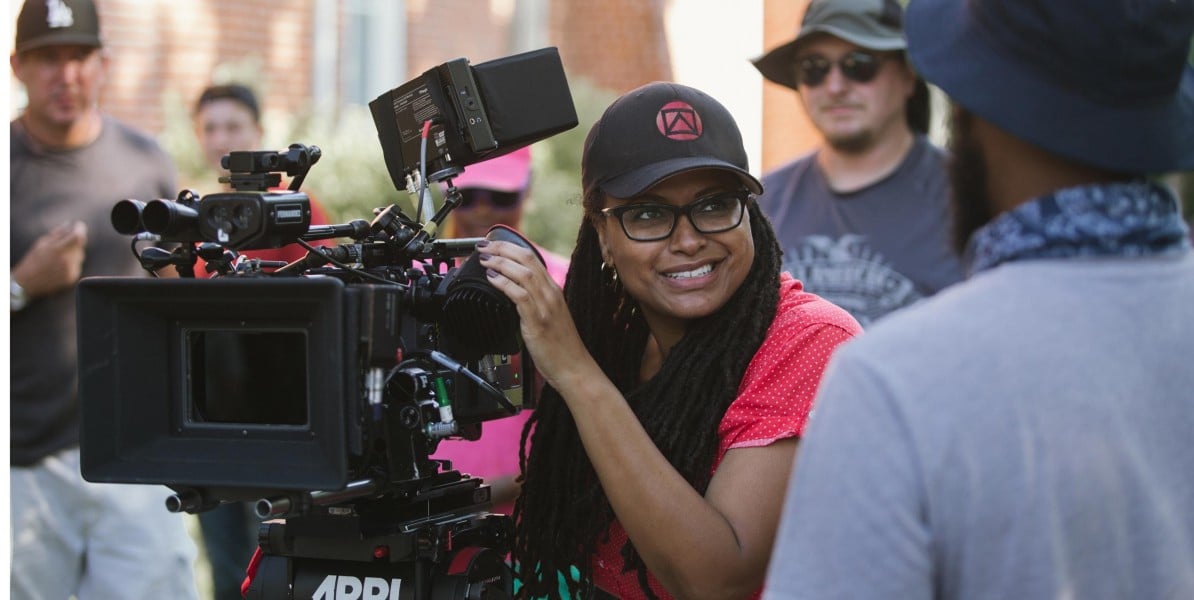
This isn’t a ranked list, but for my money, there’s no one I’d rather see tackle Black Panther than Ava DuVernay. She’s of course best known for the recent Academy Award-nominated Selma, and there are some easy parallels that one can draw between Martin Luther King and T’Challa; so much so that some have argued suggesting DuVernay for Black Panther is pigeonholing her. But it’s not so much that she has directed a film about a famous black person that makes her appealing. Rather, Selma showed her ability to deconstruct the myth of a heroic figure like Martin Luther King and reveal his humanity. And not only does she reveal the man behind the legend, she shows how the man who helped shape a movement could leave such a powerful legacy that he would be elevated to mythic status. The tension between the man and the mythos is at the heart of most successful superhero stories, and is particularly crucial for the Black Panther, who is not simply a costumed crusader but a leader of a nation. Being able to show who he is as a man — and then show how that helps make him a superhero — is integral to making the Black Panther a believable character.
The key themes that arise not only from Selma but DuVernay’s entire filmography are likely to be important elements in Black Panther as well. Structures of power, consequences of violence, exploration of masculinity, and the legacy of those who have come before and who will follow — these themes are just as essential to the character of Black Panther as they are to the experiences of African-Americans explored in DuVernay’s films. Add to the fact that even on a relatively small budget she’s shown her ability to direct breathtaking action — the “Bloody Sunday” sequence from Selma is one of the most brutal and brilliant scenes of the year — and we have a director who is in a position to make Black Panther one of the most stirring and exciting modern blockbusters.
2. Ernest Dickerson
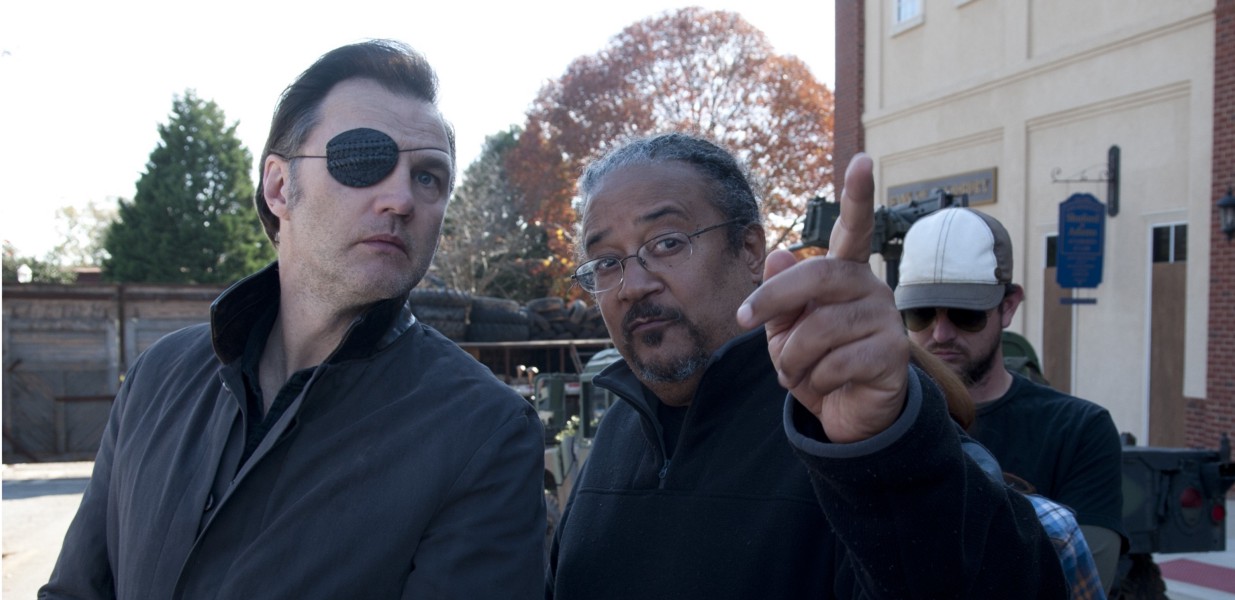
You may not know his name, but you’ve probably seen Ernest Dickerson’s work. Working in Hollywood for almost thirty years, Dickerson first got his start as Spike Lee’s cinematographer, and has lensed classic films such as Do The Right Thing and Malcolm X. He’s also an accomplished feature film director in his own right, including 1992 “hood-film” classic Juice. But Dickerson is best known for his television work, having directed more than 75 television episodes across more than 35 series, comprising all genres (including superhero — Heroes, The Cape), as well as multiple crucial episodes on fan favourites such as The Wire, Dexter and The Walking Dead. Indeed, he’s directed more Walking Dead episodes than anyone else, including stand out episodes such as the season four mid-season finale “Too Far Gone” (just watch this incredible sequence to get a sense of Dickerson’s cinematic scope).
Dickerson is a huge genre fiend, and has been trying to get a number of original sci-fi projects off the ground, including an adaptation of Octavia Butler’s “Clay’s Ark.” Black Panther, which would feature similar sci-fi explorations of humanity and power, would be a perfect fit for Dickerson.
3. John Ridley
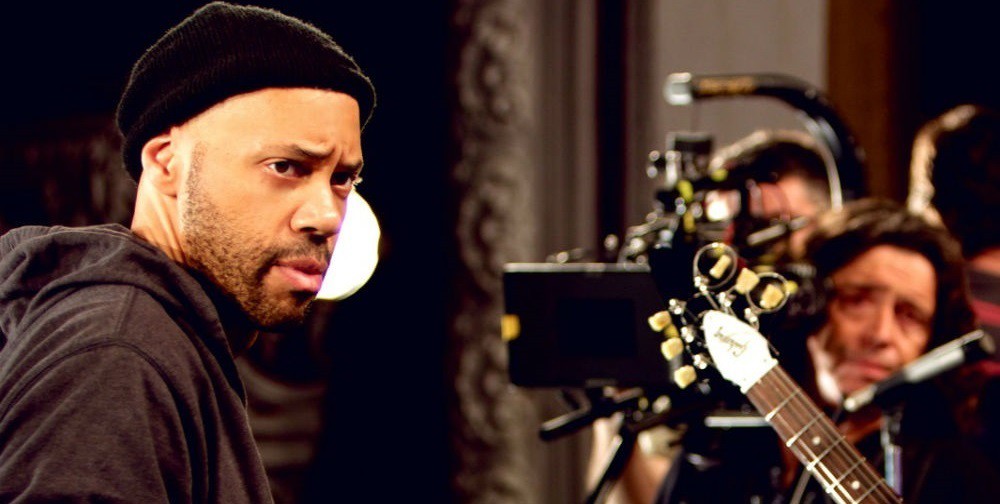
Best known for his Academy Award screenplay for 12 Years a Slave, John Ridley is a Hollywood veteran who has written numerous screenplays, novels, and even comic books, making him an obvious candidate to write the Black Panther screenplay. But he’s also worked as a director, both in feature film and in television. His first feature, Jimi: All Is By My Side, a loose biopic of Jimi Hendrix, came and went in 2013 without much attention, which is a shame — it’s energetic and exciting, showing tremendous vision and shaking up the structure of the usually dull music biopic. He also created, wrote, and directed the upcoming ABC series American Crime, an 11 episode anthology series in the vein of True Detective or American Horror Story that debuts tomorrow night.
But of course, Ridley is best known as a writer. In addition to 12 Years A Slave, his credits include Three Kings, Red Tails, and the upcoming remake of Ben-Hur. He’s also one of the few directors on this list who can claim superhero bonafides: he wrote a pair of novels with a familiar government vs. superpeople theme, and has written comics for both DC and Wildstorm, including the original series “American Way.” But perhaps most impressively for serious geeks, he wrote for the fan classic TV series “Static Shock” and “Justice League,” and is one of the credited writers on “Starcrossed,” the conclusion of the series and considered to be one of its best episodes. While thought of mostly as a screenwriter, All Is By My Side clearly demonstrates Ridley’s directorial talents, and his superhero experience makes him an ideal candidate for handling the complicated mythology of Black Panther.
4. F. Gary Gray
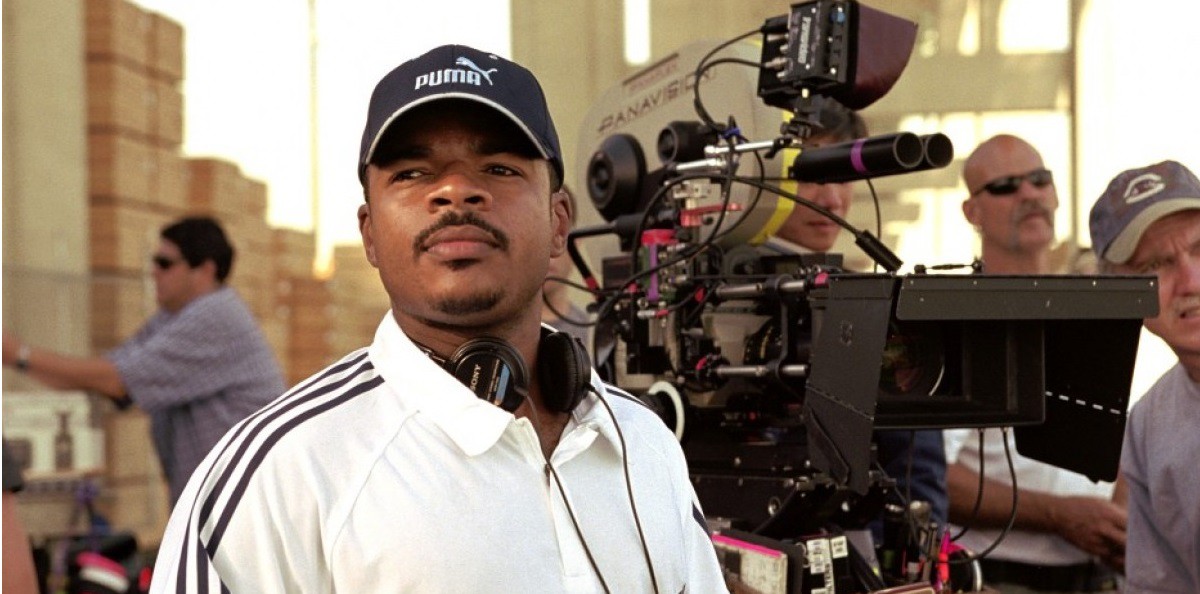
F. Gary Gray is easily the most experienced Hollywood director on this list. His films include the 2003 remake of The Italian Job, the Get Shorty sequel Be Cool, and the original action-thriller Law Abiding Citizen, all of which were box office success, if not exactly critical darlings. His next film, Straight Outta Compton, is a biopic of the influential rap group NWA, the trailer for which shows incredible promise.
To be perfectly honest, Gray’s filmography excites me a lot less than the rest of the filmmakers on this list. The Italian Job was relatively fun and engaging, while Law Abiding Citizen managed some decent moments of tension before succumbing to formula. And there’s something to be said for a director taking on a franchise film who has previous experience with sequels, reboots, and filming explosions. But the main reason Gray gets a spot on the list is that Marvel clearly sees something in him that I don’t. Gray was on the shortlist to direct Captain American: The Winter Solider, before reportedly dropping out to focus on Straight Outta Compton. Marvel has an incredible track record of picking unlikely directors who create fantastic superhero films — I wouldn’t have expected great things from the directors of Zathura: A Space Adventure or You, Me, and Dupree, which were the most recent films of Jon Faverau and the Russo Brothers before Marvel hired them. Yet those same filmmakers gave us Iron Man and Captain American: The Winter Solider. There’s an exciting mixture of danger, machismo, violence and politics hinted at in the Straight Outta Compton trailer — all things we’d hope for in Black Panther — and if Straight Outta Compton does well, don’t be surprised if Gray’s next film is set on the mean streets of Wakanda.
5. Mira Nair
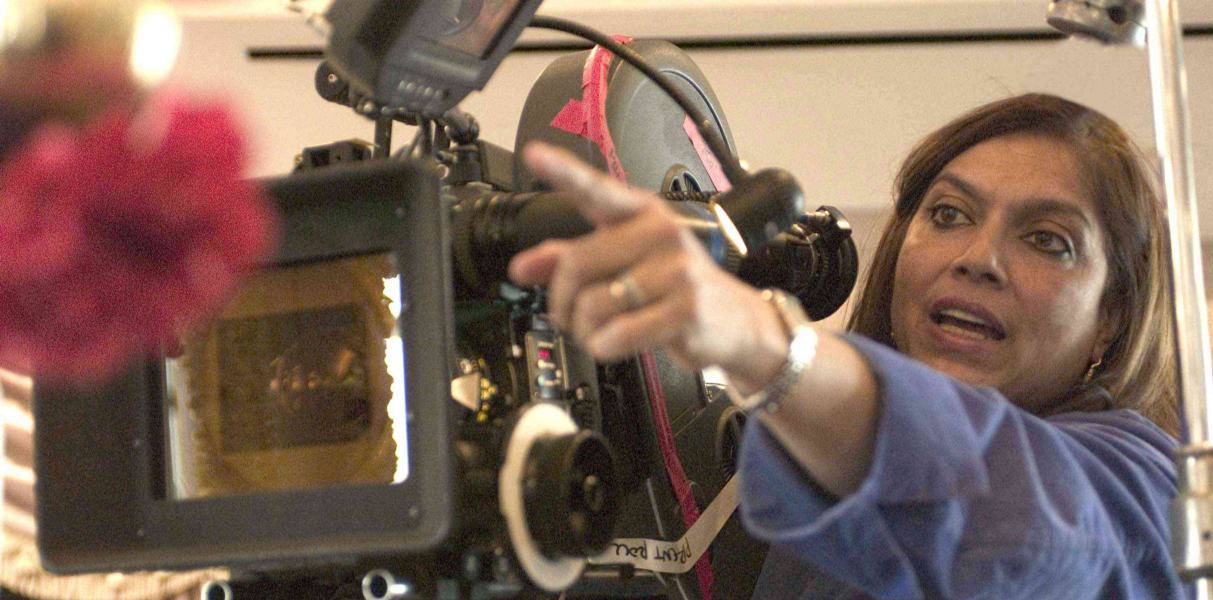
Mira Nair is the director of more than a dozen feature films and documentaries, including Monsoon Wedding, Vanity Fair, The Namesake, and the Academy Award nominated Salam Bombay. Her most recent film, The Reluctant Fundamentalist, deftly wove identity politics and action thriller elements together, precisely as Black Panther will require.
Nair also has numerous connections to Africa. Her next film, the Disney produced Queen of Katwe, is the true story of a young Ugandan girl living in poverty, who rose to become a Chess Grandmaster and compete in the World Chess Olympiad. (The film will star David Oyelowo and Lupita Nyong’o, both of whom would be great in Black Panther). Queen of Katwe will almost certainly be shot in Uganda, but this won’t be Nair’s first time filming in Africa — one of her earliest films, Mississippi Masala (starring a young Denzel Washington, another favorite fancast for Black Panther), was also partially filmed in Uganda. In fact, though Nair is from India originally, she has lived in Kampala (Uganada’s capital) for more than twenty years, and set up a film lab to help mentor East African filmmakers and promote African cinema.
Nair has been offered blockbuster films in the past — she turned down the opportunity to direct Harry Potter and the Order of the Phoenix, in part, she said “because many people could direct a Harry Potter film, but only I could make The Namesake.” Would she feel the same way about Black Panther? Well, when she so powerfully argues that “one so rarely sees any images from the African continent that even vaguely resemble what it is like to live here, or to struggle here — the dignity and the power and the beauty of it,” one might hope the incentive to direct a blockbuster movie that does justice to African lives and stories would be a powerful one.
6. Ryan Coogler
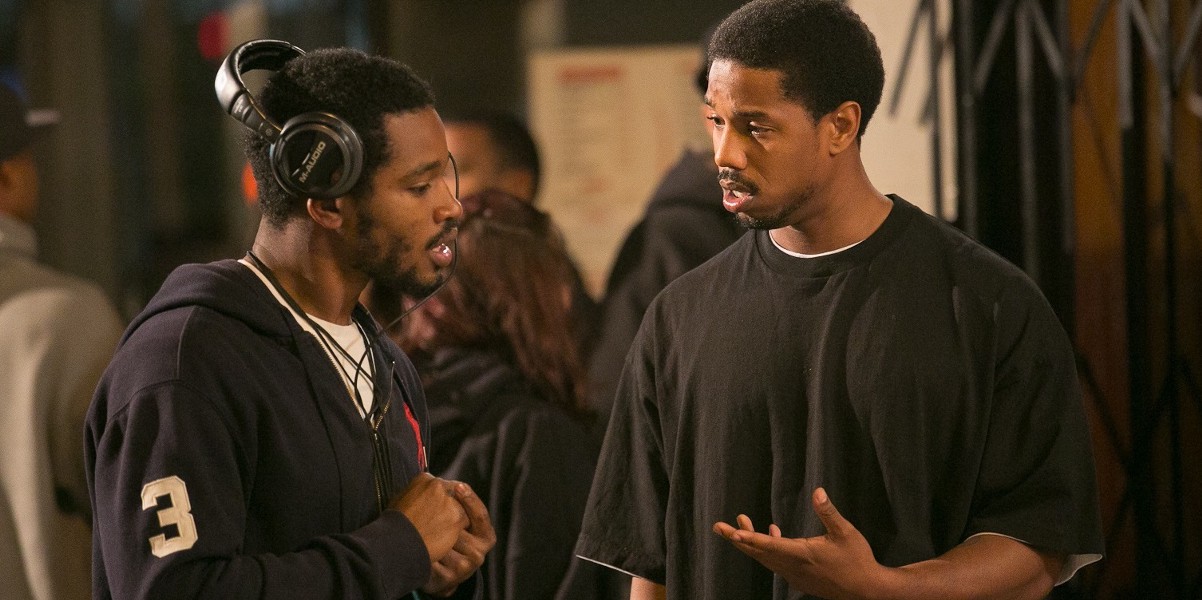
Ryan Coogler’s Fruitvale Station serves almost as a contemporary mirror to Ava Duvernay’s Selma, and not just because each film beautifully illustrates issues facing African Americans. While Duvernay moved beyond the trappings of the conventional biopic and made her film more about the rise of a movement than the trials of one man, Coogler’s exploration of police violence avoids being simply a preachy drama focusing on a tragic moment in recent history. Instead, it is a deeply moving character study whose protagonist is far more than just a tragic victim, depicted as a deeply sympathetic and fallible human being who is instantly relatable.
Coogler is currently shooting his next film, Creed, a spin-off of the Rocky franchise (set for release later this year). Starring Michael B. Jordan (who also starred in Fruitvale Station) and Sylvester Stallone returning to the role of Rocky, this smaller studio film — but still part of a franchise — serves as a perfect jumping off point to tackle a huge blockbuster. Coogler helped launch Jordan’s career to superhero heights (he stars as The Human Torch in this summer’s Fantastic Four) and it’s about time Coogler made the same leap. If Marvel doesn’t snap him up, there’s no question some other studio will.
7. Cary Fukunaga
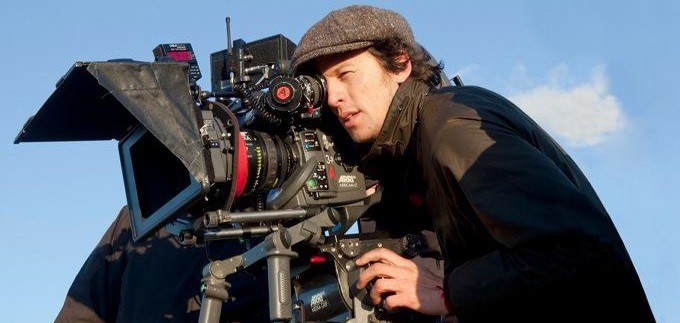
Cary Fukunaga is a very eclectic filmmaker. Born and raised in California, his first feature, the superb Sin Nombre, was shot on location in Mexico and filmed entirely in Spanish. His follow up was about as different as one could imagine — a British costume drama, the critically acclaimed adaptation of Jane Eyre. He’s of course best known for directing the entire first season of the smash hit True Detective, but his next movie has taken him abroad once again. Due out later this year, Beasts of No Nation is a child soldier war drama starring Idris Elba, set in an unnamed African country but filmed entirely in Ghana.
Fukunaga is currently one of the hottest directors in Hollywood at the moment — he’s set to start shooting his first studio film this summer, the adaption of Stephen King’s It, and has numerous other projects in development. But there are two themes that seem to thread their way through Fukunaga’s diverse body of work, and that might attract him to Black Panther: an exploration of the socio-political context of violence, and an attention to the specifics of place. Be it the bayous of Louisiana in True Detective, the moors of Northern England in Jane Eyre, or the Mexican countryside in Sin Nombre, the setting acts as such an integral factor in the narrative that it functions almost as a character in and of itself. Both the rationales for violence and the space in which it happens (Wakanda) are crucial elements of Black Panther, and Fukunaga has demonstrated his gift at exploring these complex themes. Add to that his tremendous visual flair, and it’s clear Marvel would be wild not to try and convince Fukunaga to shoot another film in Africa.
8. Amma Asante
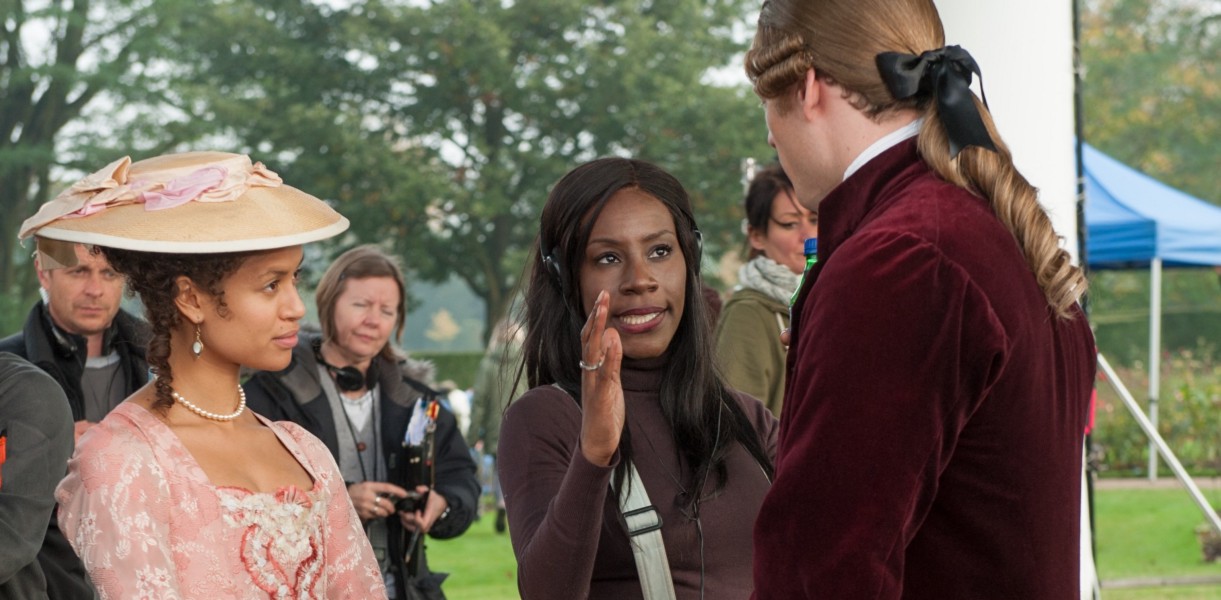
Period costume dramas and superhero blockbusters probably don’t have a lot of crossover fans, but fans of the latter would miss out on a truly great film if they skipped Amma Assante’s Belle. The film may have the basic framework of a British period romance, but its real driving force is the pursuit of justice. While Black Panther is unlikely to revolve around the tension of marrying for love or money, Belle delves into issues of power, legacy, and identity in ways that might well be a key part of Black Panther.
The success of Belle has led to numerous other offers for Assante. She’s set to direct her first major American studio picture, the Warner Bros. thriller Unforgettable, starring Kerry Washington and Kate Hudson, and has already lined up funding for her next film after that, Where Hands Touch, a romantic drama centred on a mixed-race German girl and an SS Officer. Assante’s passion for exploring the dynamics of race, power and politics, combined with the studio experience of helming a more conventional thriller, indicates she’s in a perfect position to make a Black Panther film that is as powerful as it is entertaining.
9. Yann Demange
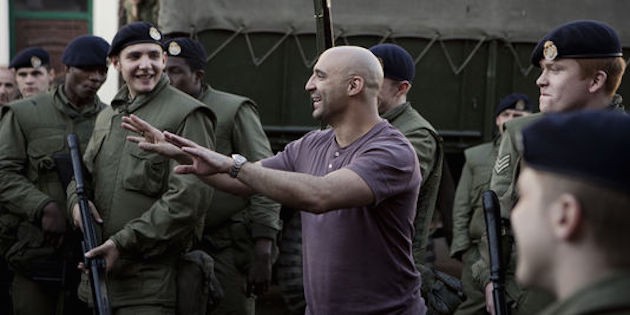
‘71, Yann Demange’s debut feature, has been tearing up the festival circuit for the past year, and recently earned the first time director a British Independent Film award for Best Director as well as a BAFTA nomination for Outstanding Debut. The film, set in violent and sectarian Belfast during the height of the troubles, is about a young British solider attempting to survive the night after being left behind by his squad. The political context, however, is principally a backdrop for what is one of the most searing thrillers in years. Though ‘71 is his first feature, he has plenty of experience in British television: he directed the BAFTA nominated zombie mini-series Dead Set, a number of episodes of Peter Moffat’s award winning Criminal Justice, and the first series (season) of Top Boy, described as a British version of The Wire, for which Demange received a Best TV Directing BAFTA nomination as well a number of other awards and nominations.
It’s clear Demange has interest in stories around political conflict — he wrote a screenplay about the Algerian Civil War and was at one point attached to direct a film about the 1980 siege of the Iranian Embassy. He’s just been announced to direct The Seven Five, the true story of a corrupt gang of NYPD officers who acted as violent gangsters in the early 90’s. It’s easy to see how the material would be a good fit for Demange, and could act as excellent preparation for Black Panther — not only by again exploring the intersection of violence and politics, but also by working on a higher budget Hollywood film. Depending on when The Seven Five begins production, it’s possible it would conflict with Black Panther (prep for which is likely to begin in the middle of next year); but if not, Demange’s sense of tempo, ability to stage fierce action, and gift for making political struggle compelling would make him perfect to give Black Panther’s conflicts a sense of vivid realism.
10. Dee Rees
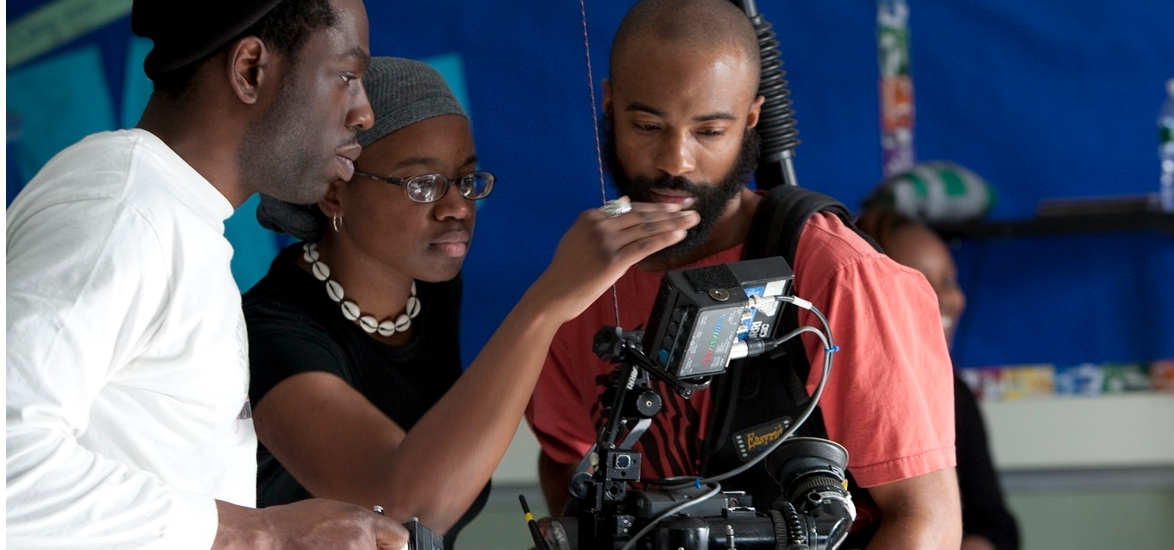
Dee Rees’ first film, Pariah, is an absolutely stunning coming of age drama about a 17-year-old lesbian grappling with relationships, her family, and her own sense of identity. In less sure hands it could have wound up like half a dozen other maudlin coming of age films, but Rees, who both wrote and directed the film, handles her actors with such care and grace that moments of tenderness and joy are simultaneously heart wrenching and exhilarating. We haven’t seen anything from Rees since, but her next film, Bessie, a biopic of the legendary blues singer Bessie Smith, will appear on HBO later this year.
If those don’t seem like obvious precursors for a big budget tentpole, at least one studio disagrees. Rees was tapped to adapt and direct Phillip K. Dick’s Martian Time Slip, a time travel action adventure story set on a colonial Mars. Dick’s works, of course, have been adapted numerous times and form the basis of films such as Blade Runner, Total Recall, and Minority Report.
Moreover, it isn’t the action sequences and special effects that make Marvel films sing, though both are admittedly great. Rather, it’s the heart at the centre of them, the fact that we feel for our characters and that our superteams feel like a family. It’s part of what distinguishes Marvel films from their DC counterparts, which are colder and more removed, broader in scope than the intimate stories Marvel tells that just so happen to be playing out on a giant stage filled with killer robots and explosions. Rees’ incredible gift as a filmmaker is to realistically craft the spaces for her characters to breathe, grow, live, and feel. Black Panther will obviously have stunning visuals and a bombastic third act, but unless the audience can connect to the characters, it will all feel like sound and noise. There’s no doubt in my mind that Rees could handle the action elements — just watch how Pariah is filmed and edited to see her incredible visual sense and gift for pacing — but it’s her ability to help shape the more human moments that Marvel should be especially interested in.
Honorable Mention: Wanuri Kahiu
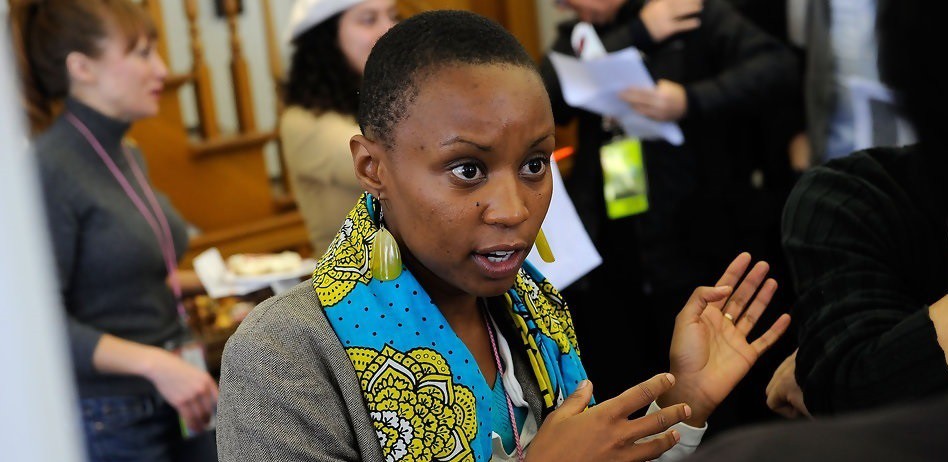
Unless you closely follow African cinema or are an avid reader of the excellent blog Shadow and Act, chances are you’re unfamiliar with the name of Wanuri Kahiu. Her debut feature From A Whisper never received North American distribution, but was a huge success in Africa — the film received 12 nominations and won 5 awards at the African Movie Academy Awards (considered the “African Oscars”) including Best Picture, Best Director, and Best Original Screenplay. She’s perhaps best known for her short film Pumzi, a spare but haunting science fiction story (which you can watch in it’s entirety here). Since then, she’s been at work on a number of projects, including at least two documentaries, a Downton Abbey-like TV Drama about Kenyan politics, and a feature film entitled Jambula Tree, a love story about two teenage girls.
In all honesty, there’s very little likelihood of Kahiu being offered to direct a tent-pole blockbuster with so little Hollywood experience (though she did work with F. Gary Gray on The Italian Job — if he were to direct the film, she might serve as assistant director or in a similar supporting role). But I highlight her here in part to draw attention to the fact that there’s no one on this list who’s actually from Africa (though Nair might well now be a Ugandan citizen). Furthermore, Kahiu brings a unique perspective to the specific way in which science-fiction can serve as a lens onto Africa (often described as Afro-Futurism), which she expounds on beautifully in interviews and in presentations, such as her TEDtalk presentation at TEDx Nairobi.
In order to avoid falling into many of the stereotypes and cliches that plague films set in Africa, it would behoove Marvel to work with African filmmakers and artists. Kahiu would be an ideal person to help ensure that Wakanda simultaneously stays to true African realities while also exploring the possibilities that science-fiction and superhero films provide in expanding our sense of the real.
Wait, are you saying the director of Black Panther needs to be black? That’s reverse-racism!

[Author’s note: I’m sure The Mary Sue readership is sophisticated enough that this rebuttal isn’t really necessary, but it’s such a common argument on the internet I felt it was best to address it head on.]
Preach it, T’Challa.
And no, I’m not saying that the director of Black Panther must be black (in fact, not all of the people above are black). While it’s not a coincidence that all the directors above are people of colour, they were not picked because they are people of colour but because of their cinematic talent and my feeling that they would be specifically well-suited both to the complex geo-politics and to the superhero action of Black Panther.
It’s certainly true that it’s problematic that filmmakers of colour get pigeonholed into only telling stories about people of colour, and I definitely think many of these filmmakers would be great for a variety of superhero projects. While I do think there are many instances in which the perspective of a filmmaker of colour is integral, I’m not trying to suggest that only a person of colour has the lived experience that can shine a light on the fictional Wakanda.
Rather, what’s at issue is that when fans make lists suggesting who might be candidates to helm the next big franchise, if all the directors happen to white men, it’s never suggested that it’s because they are white men they got there. Instead, it illustrates how white and male is considered the “normal.” Fewer than 6% of directors for the previous six years’ highest grossing movies were black, and though there are no stats for other minority filmmakers, with the exception of a few notable cases, it’s easy to imagine the numbers are similarly dire. To shift from this — white as the default — often requires conscious active thought. It’s part of what inspired this article series in the first place — to prompt that thought in readers, and, with hope, Marvel execs as well.
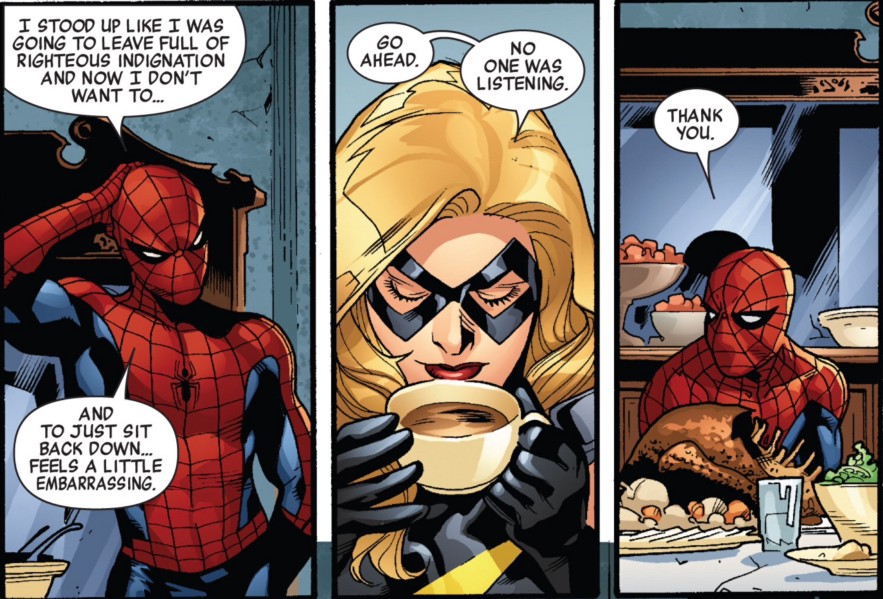
You’re welcome, Spider-Man.
Notable Omissions
A few notes on some omissions: while some of my selections may verge on being too indie to really be likely, I tried to pick directors that would at least be plausible choices for a Marvel film. That immediately rules out the likes of Spike Lee and Steve McQueen. They’re obviously enormously talented filmmakers, but neither is likely to want to deal with the constraints of a studio and the narrative obligations of a multi-film franchise. Antoine Fuqua’s name frequently comes up in discussion, but to me his recent films indicate a lack of grace and nuance that I think is essential to prevent Black Panther from being cartoonish (I would rather not see T’Challa slow walk away from an exploding Skrull ship). Maybe this summer’s Southpaw with Jake Gyllenhaal will convince me otherwise, but Fuqua has numerous projects in development as is. Reginald Hudlin’s name is also sometimes suggested, most likely because Kevin Feige mentioned him at the presentation where Black Panther was announced. While Hudlin wrote a run on the Black Panther comic that was very (commercially) successful, it was extremely divisive among fans, and there’s nothing in his filmography that suggests to me he has what it takes to direct the film (I’d happily see him consult or produce though — flawed as it may have been, his Black Panther run brought a number of interesting elements of the character to prominence).
Other omissions include filmmakers I like but can’t really see doing a Marvel project (Gina Prince-Bythewood, Richard Ayode), or great filmmakers who arguably lack the requisite experience (Thomas Ikimi, Tanya Hamilton). A few eligible candidates, like Justin Simien, will pop up in a future article (and in fact Simien appeared in a previous one), while Rick Famuyiwa’s recent Sundance hit Dope suggests he might well be in the running, but I haven’t yet seen the film. And though The Butler was fine, I just don’t particularly want to see “Lee Daniel’s The Black Panther.” Ultimately though, this list is not meant to be a definitive list of eligible candidates. Instead, this piece is an attempt to spotlight interesting filmmakers of colour— with whose vision I believe the MCU would be made richer. I welcome suggestions for other filmmakers who could do likewise.
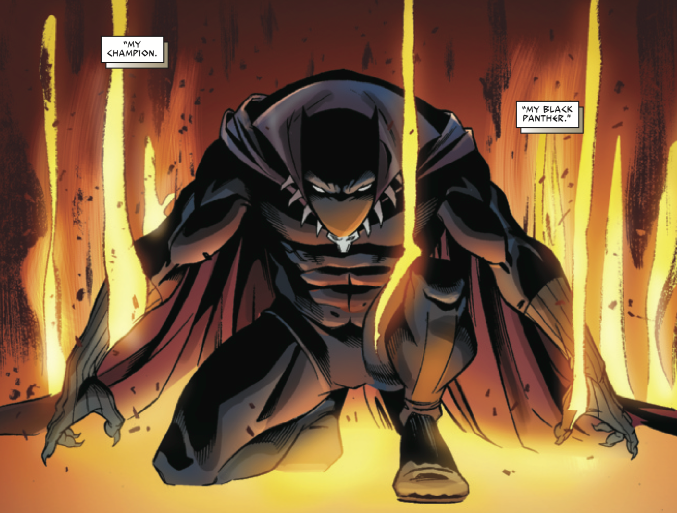
Michael is an avid comics geek and cinema lover, and especially likes when those two passions intersect. He tweets about comics, film, and social justice stuff at @MC_Nedelsky and is a regular contributor to MCU Exchange, a site dedicated to discussing all the Marvel Cinematic Universe has to offer.
Are you following The Mary Sue on Twitter, Facebook, Tumblr, Pinterest, & Google +?



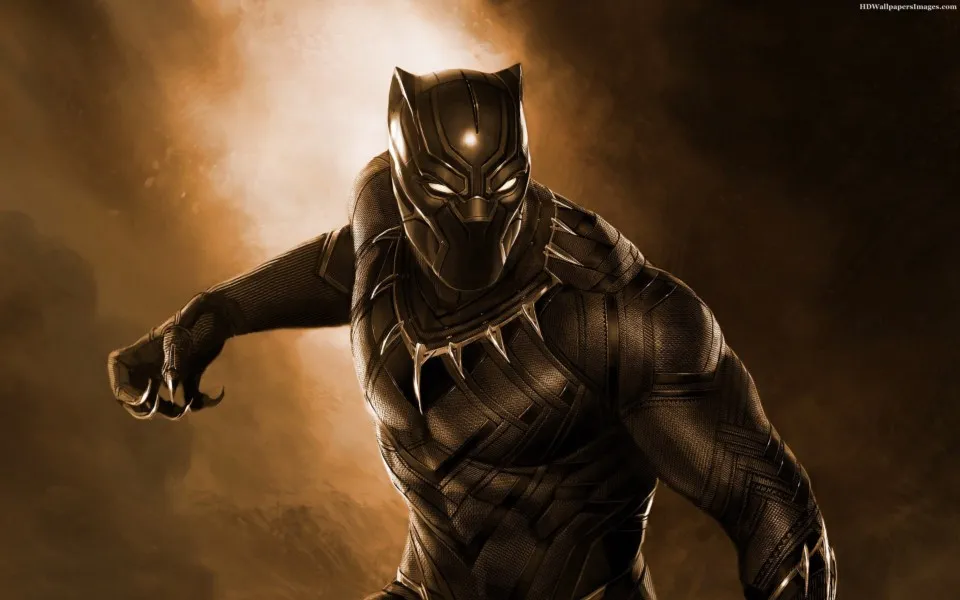





Published: Mar 4, 2015 08:00 pm